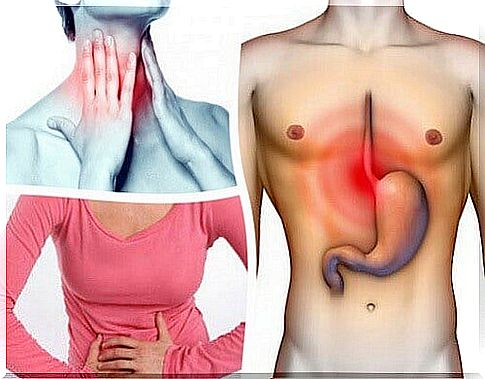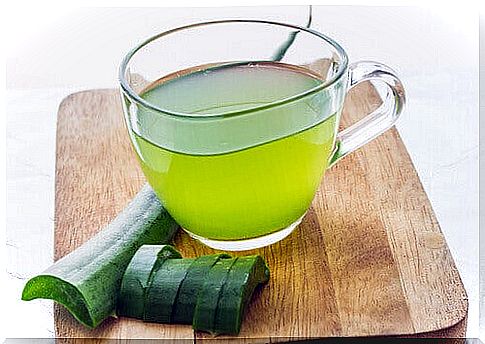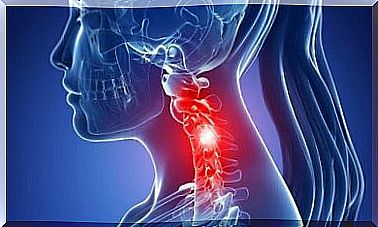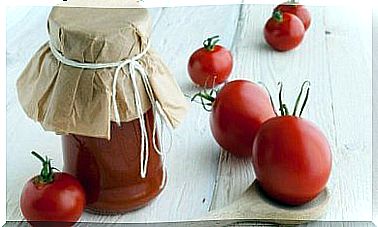Do You Suffer From Gastroesophageal Reflux?

This digestive disorder is becoming more common. It is characterized by a burning sensation and discomfort in both the stomach and esophagus. The symptoms almost always occur after eating or drinking. You may suffer from gastroesophageal reflux without even knowing it. In this article you will learn a little more about the characteristics of it, as well as some natural treatments.
What does it mean to have gastroesophageal reflux?
To understand what this digestive problem entails, let’s analyze the words that create the name.
“Reflux” means return. While the body is healthy, the digestive process begins after eating, and this is done with the help of muscle and acid. During this time, the entrance to the stomach is closed to prevent these irritating fluids from entering the esophagus where they do not belong.
But when you have gastroesophageal reflux, this does not happen. The entrance to the stomach does not stay closed, and this allows stomach acid to pass into the esophagus along with food.
To give you an idea of how it feels, think about what it is like to vomit. It leaves a sour taste and burning sensation in the throat and mouth. This happens because the food has come up with stomach acid.
Back to the topic of reflux, if a person suffers from reflux several times a week or month, they are said to have a condition called gastroesophageal reflux disease (GØRS).
What causes GØRS?

The causes of this problem that occur after eating (either a little or a lot) are:
- An esophageal hernia presses on the upper part of the stomach which weakens the esophageal sphincter (entrance) and allows stomach acid to come up.
- Taking certain medications such as aspirin, anticholinergics, beta-blockers for high blood pressure, bronchodilators or dopamine. Each of these has a different effect on the stomach and esophagus.
- Bad eating habits such as eating a lot at the wrong times, eating spicy or annoying foods, eating a diet based on processed foods or fast food.
- Pregnancy. Many women suffer from this problem only during pregnancy because the growing baby presses on the abdomen, which makes the sphincter of the esophagus easier to open. However, you need to keep an eye on this, because this dysfunction can continue after birth.
- Being overweight. This is similar to what happens during a pregnancy. Ingested foods and belly fat cause more pressure than normal, and this causes the food to go up the esophagus.
- Tensions and stress, as well as anxiety, financial problems, pressure or nerves. All of this can make your stomach tense, irregular and upset.
The most common symptoms of gastroesophageal reflux are:
- A burning sensation or pain in the sternum (heartburn)
- Reflux (food comes up in the mouth).
- Difficulty swallowing.
- Non-cardiac chest pain (confused with myocardial infarction).
- Raping.
- Feeling of heaviness after eating.
- Nausea.
- Hiccup.
- Discomfort in the throat.
- The voice fails.
- The feeling that something is stuck in the throat.
- Cough at night.
- Bronchoconstriction.
- Internal bleeding.
- Anemia.
How can I treat gastroesophageal reflux naturally?

It is very important to develop healthy eating habits. It is important to stop taking:
- Coffee
- Soda
- Chocolate
- Tomato sauce
- Alcohol
- Vinegar
- Animal fat (as in sausages)
- Strong spices
- Mustard
- Pepper
- Chile
- Milk and other dairy products
You must also keep in mind that in order to reduce or prevent reflux, it is necessary to:
- Avoid physical activity after eating (it is better to sit to rest or go for a walk).
- Avoid lying down right after eating.
- Avoid bending forward after eating.
- Avoid eating fast.
- Avoid carrying heavy after lunch or dinner.
- Chew all the food well.
- Do not talk while eating.
- Do not eat if you are angry or upset.
- Do not drink soda or juice with sugar during meals.
- Avoid smoking.
- Have dinner early.
- Do not wear belts or tight clothing over the abdomen.
- Follow a healthy diet for weight loss.
- Perform yoga and meditation.
Recommended foods for those with gastroesophageal reflux
You are already familiar with the list of forbidden foods. Here is what you can eat:
- Fresh salads
- Natural juice
- Vegetable milk (rice, oats, almonds, millet)
- Probiotics (yogurt or kefir)
- Nuts
- Herbal tea
- Cardamom
- Ginger
- Water
- Basil
Natural remedies for DO
You already know what good habits you need to develop and what bad habits you need to end. To find relief when experiencing a gastroesophageal reflux attack, try these:
Apple cider vinegar

Mix a tablespoon in a glass of water and drink this before eating to calm your stomach and aid digestion. This is also good after meals and it works immediately.
Natron
It has a thousand and one different uses. It is good for treating abdominal pain, gastritis and acid regurgitation. Dissolve a tablespoon in a glass of water and drink as quickly as possible (before it starts to bubble).
Aloe vera juice

How can you avoid having an aloe vera plant in your home? What are you waiting for? This is one of the best natural remedies to treat and cure a variety of ailments. It will really help against acid reflux.
Dissolve the contents of a stalk from an aloe vera plant in a 1/2 glass of water and drink this when the symptoms first appear.









